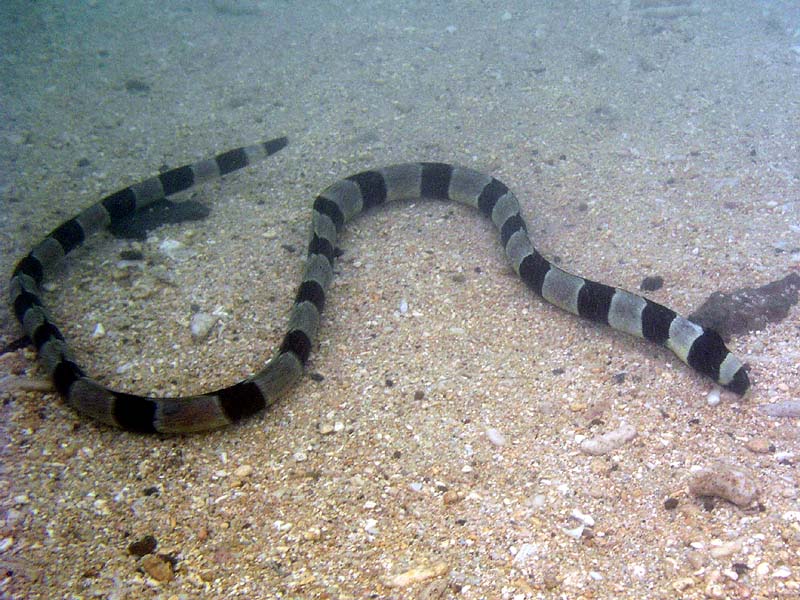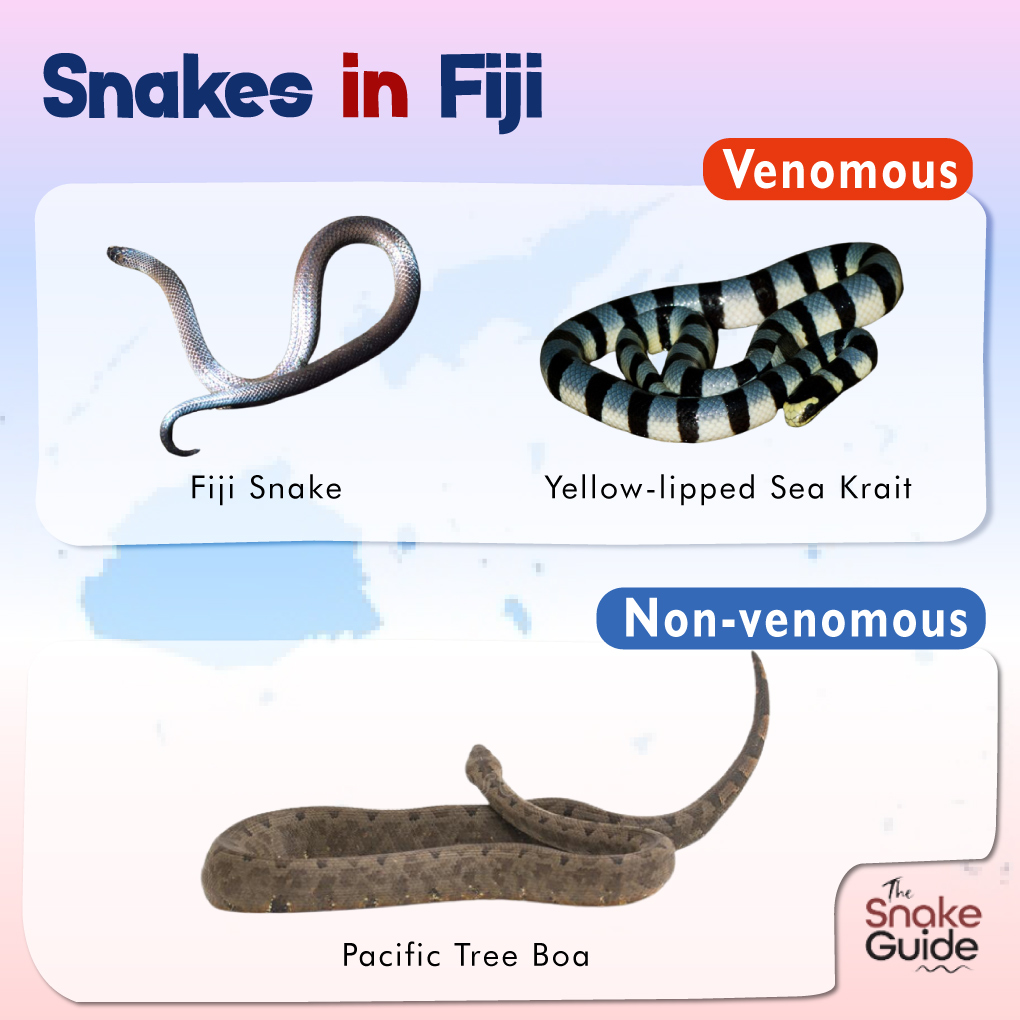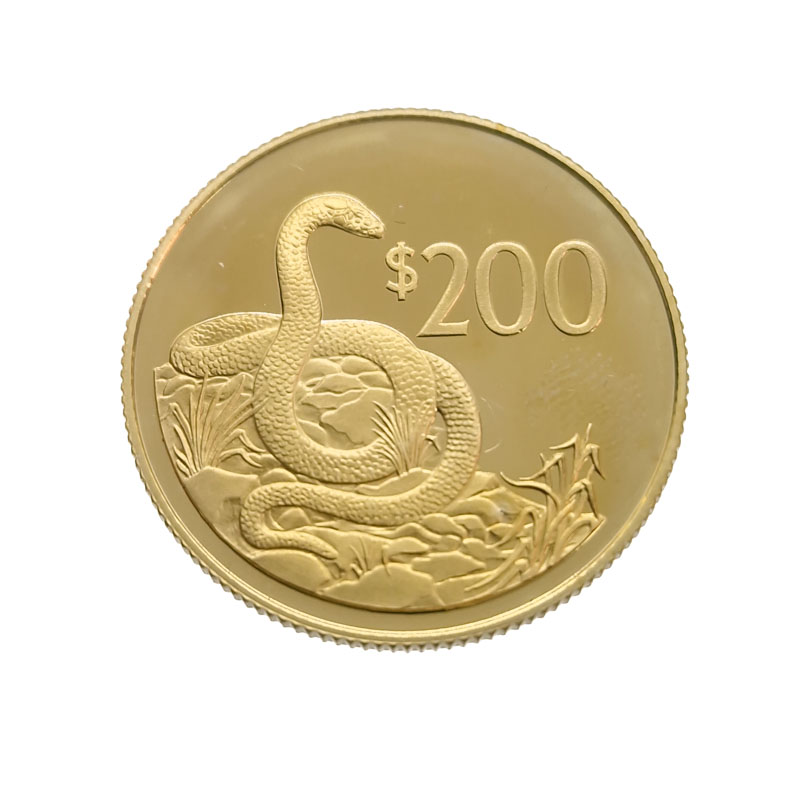When you hear the word Fiji, pristine beaches and tropical paradise might come to mind. But beneath the turquoise waters and lush jungles lies a world of mystery, including the elusive Fiji snake. These fascinating creatures are not just any ordinary reptiles; they’re a symbol of nature’s resilience and adaptation. So, buckle up, because we’re diving deep into the world of these slithering wonders!
Now, let’s get real for a sec. Fiji snakes might not be the first thing that pops into your head when you think about this South Pacific gem. But trust me, these snakes play a crucial role in the island’s ecosystem. They’re not just creepy crawlies; they’re part of what makes Fiji’s biodiversity so unique. And hey, if you’re a wildlife enthusiast, this is gonna blow your mind!
Whether you’re here out of curiosity or because you’ve got a thing for snakes, you’re in the right place. We’re gonna uncover everything you need to know about Fiji snakes, from their habitat to their significance in the ecosystem. So, let’s slither into the details!
Read also:Sotwee Fantasy Your Ultimate Guide To Unleashing The Magic
What Exactly Are Fiji Snakes?
Alright, let’s break it down. Fiji snakes are a group of reptiles native to the Fiji Islands. They’re not your average garden snakes, folks. These guys have adapted to the island’s unique environment, making them some of the most fascinating creatures in the region. And guess what? They’re mostly harmless to humans, so no need to freak out if you spot one during your tropical getaway.
One of the most common species is the Fiji ground snake, which is often mistaken for other snakes due to its cryptic nature. These snakes are small, usually measuring around 30-50 centimeters, and come in a variety of colors, from brown to orange. But don’t let their size fool you; they pack a punch when it comes to their ecological role.
Unique Characteristics of Fiji Snakes
Let’s talk about what makes Fiji snakes so special. For starters, they’ve got this incredible ability to blend into their surroundings. Their color patterns are designed to help them avoid predators and sneak up on prey. It’s like nature’s version of camouflage, and it works like a charm.
Here’s a fun fact: Fiji snakes are mostly nocturnal, meaning they’re most active during the night. So, if you’re planning a snake-spotting adventure, bring a flashlight and patience. And oh yeah, they’ve got this keen sense of smell that helps them track down insects and small animals. Pretty cool, right?
Where Can You Find Fiji Snakes?
Fiji snakes are mostly found in the dense rainforests of the islands. These guys love humid environments, so you’ll often find them near rivers, streams, and other water sources. And if you’re wondering why they prefer these areas, it’s because they provide the perfect conditions for their survival. The moisture helps them stay hydrated, and the vegetation offers plenty of hiding spots.
But here’s the thing: Fiji snakes are becoming harder to find. Habitat loss and human activities are threatening their population. That’s why conservation efforts are crucial to ensuring these snakes continue to thrive in their natural habitat. So, if you ever visit Fiji, make sure to respect the environment and keep an eye out for these amazing creatures.
Read also:Dutch Oven Meaning A Comprehensive Guide To This Kitchen Essential
Top Spots for Spotting Fiji Snakes
Wanna know where to go if you’re on a Fiji snake hunt? Here are a few top spots:
- Viti Levu: The largest island in Fiji, Viti Levu is home to a variety of snake species. You’ll find them lurking in the rainforests around the Coral Coast.
- Vanua Levu: This island is another hotspot for Fiji snakes. The dense jungles here provide the perfect habitat for these elusive reptiles.
- Taveuni: Known as the "Garden Island," Taveuni is a paradise for nature lovers. The island’s lush forests are a great place to spot Fiji snakes in their natural habitat.
Why Are Fiji Snakes Important?
Okay, so you might be wondering why we should care about Fiji snakes. Well, here’s the deal: these snakes play a vital role in maintaining the balance of the ecosystem. By preying on insects and small animals, they help control pest populations, which is super important for agriculture and biodiversity.
Plus, Fiji snakes are indicators of environmental health. If their population starts to decline, it could mean something’s wrong with the ecosystem. So, by protecting these snakes, we’re also protecting the entire environment. Pretty neat, huh?
Ecological Impact of Fiji Snakes
Let’s dive deeper into the ecological impact of Fiji snakes. These reptiles are part of a complex food web that keeps the ecosystem functioning smoothly. Without them, the balance could be thrown off, leading to all sorts of problems. For example, if snake populations drop, insect populations could skyrocket, causing damage to crops and spreading diseases.
And let’s not forget about biodiversity. Fiji snakes contribute to the island’s rich variety of wildlife, making it one of the most unique places on the planet. So, by preserving these snakes, we’re helping to protect the incredible biodiversity of the Fiji Islands.
Fiji Snake Conservation Efforts
Now that we know how important Fiji snakes are, let’s talk about what’s being done to protect them. Conservationists and local communities are working hard to ensure these snakes have a safe place to live. From creating protected areas to educating the public, there are plenty of initiatives aimed at preserving these incredible creatures.
One of the biggest challenges is raising awareness about the importance of Fiji snakes. Many people still view snakes as dangerous or scary, but the truth is, they’re essential to the ecosystem. By educating people about the role snakes play, we can help change perceptions and encourage conservation efforts.
How You Can Help
So, what can you do to help protect Fiji snakes? Here are a few ideas:
- Support Conservation Organizations: There are plenty of organizations working to protect Fiji snakes and their habitats. Consider donating or volunteering your time to support their efforts.
- Respect Wildlife: If you’re visiting Fiji, make sure to respect the environment and avoid disturbing wildlife. Stick to designated trails and never try to handle or harm snakes.
- Spread Awareness: Share what you’ve learned about Fiji snakes with others. The more people know about their importance, the more likely they are to support conservation efforts.
Myths and Misconceptions About Fiji Snakes
Let’s clear up some common myths about Fiji snakes. First of all, they’re not all venomous. In fact, most Fiji snakes are harmless to humans. But that doesn’t stop people from being scared of them. Fear of snakes, or ophidiophobia, is one of the most common phobias in the world, and it can lead to unnecessary harm to these creatures.
Another misconception is that snakes are aggressive. The truth is, most snakes are shy and will only attack if they feel threatened. So, if you ever encounter a Fiji snake, just give it some space and it’ll slither away without causing any trouble.
Debunking Snake Myths
Here are a few more myths about Fiji snakes and the truth behind them:
- Myth: All snakes are dangerous. Truth: Most Fiji snakes are harmless and play a vital role in the ecosystem.
- Myth: Snakes are aggressive. Truth: Snakes are generally shy and will only attack if they feel threatened.
- Myth: Snakes can’t hear. Truth: While snakes don’t have external ears, they can sense vibrations and pick up on sounds through their bodies.
Scientific Research on Fiji Snakes
Scientists are constantly studying Fiji snakes to learn more about their behavior, habitat, and role in the ecosystem. Recent research has shed light on some fascinating aspects of these creatures, from their genetic makeup to their interactions with other species.
For example, a study conducted by the University of the South Pacific found that Fiji snakes have adapted to their environment in unique ways. Their diet, behavior, and even their physical characteristics have evolved to help them survive in the island’s challenging conditions. This research not only helps us understand Fiji snakes better but also highlights the importance of preserving their habitat.
Key Findings from Recent Studies
Here are some key findings from recent studies on Fiji snakes:
- Adaptation: Fiji snakes have developed unique adaptations to survive in their environment, such as color patterns for camouflage and specialized diets.
- Genetics: Genetic studies have revealed that Fiji snakes are closely related to other snake species in the region, but have evolved distinct characteristics due to their isolation on the islands.
- Ecosystem Role: Research has shown that Fiji snakes play a crucial role in controlling insect populations, making them vital to the island’s ecosystem.
The Future of Fiji Snakes
So, what does the future hold for Fiji snakes? With ongoing conservation efforts and increased awareness, there’s hope for these incredible creatures. But there’s still a long way to go. Climate change, habitat loss, and human activities continue to threaten their survival. That’s why it’s up to all of us to do our part in protecting these snakes and their habitat.
By supporting conservation efforts, educating others, and respecting wildlife, we can help ensure that Fiji snakes continue to thrive for generations to come. And who knows? Maybe one day, these fascinating creatures will become a symbol of conservation success in the South Pacific.
Final Thoughts
As we wrap up our journey into the world of Fiji snakes, remember this: these creatures are more than just slithering reptiles. They’re vital to the ecosystem, fascinating to study, and deserving of our protection. So, the next time you’re in Fiji, keep an eye out for these amazing animals and appreciate the role they play in the island’s biodiversity.
And hey, don’t forget to share what you’ve learned with others. The more people know about Fiji snakes, the more likely they are to support conservation efforts. So, leave a comment, share this article, or check out other content on our site. Together, we can make a difference for these incredible creatures!
Table of Contents
- What Exactly Are Fiji Snakes?
- Unique Characteristics of Fiji Snakes
- Where Can You Find Fiji Snakes?
- Top Spots for Spotting Fiji Snakes
- Why Are Fiji Snakes Important?
- Ecological Impact of Fiji Snakes
- Fiji Snake Conservation Efforts
- How You Can Help
- Myths and Misconceptions About Fiji Snakes
- Debunking Snake Myths
- Scientific Research on Fiji Snakes
- Key Findings from Recent Studies
- The Future of Fiji Snakes
- Final Thoughts


